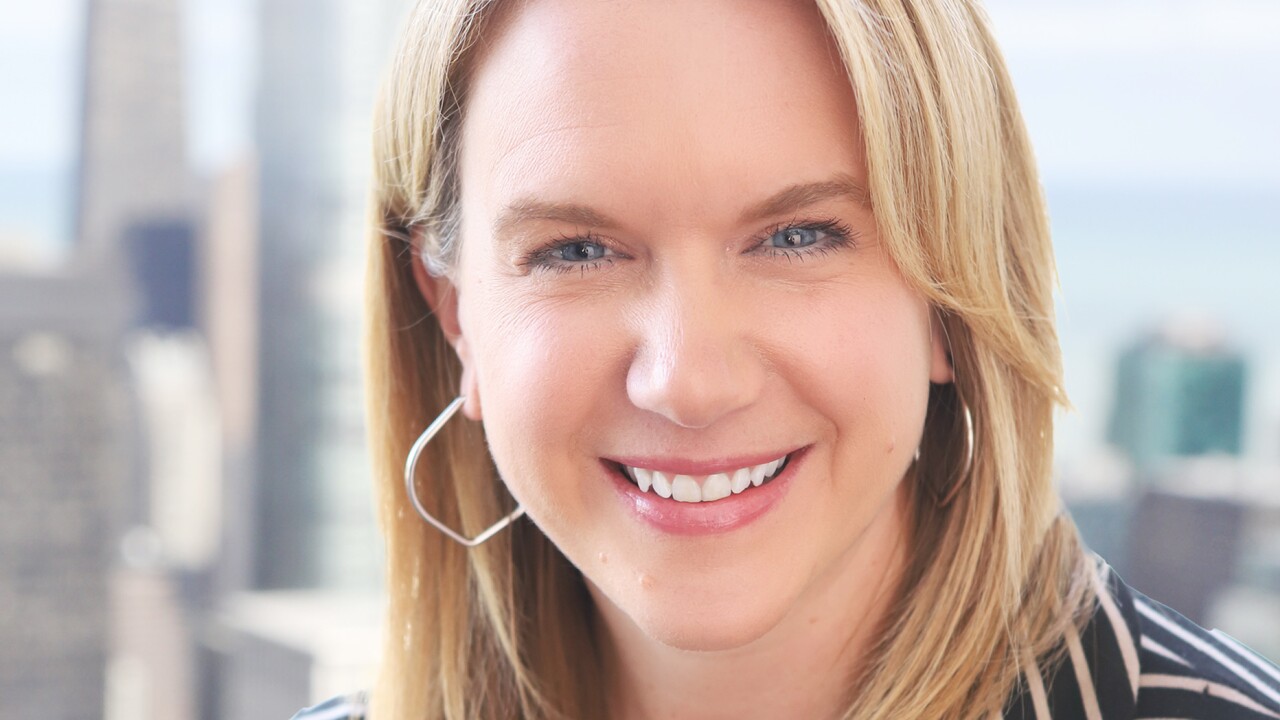
BECU has acquired EarnUp's AI Advisor product and related technology and team, the Seattle area credit union told American Banker.
Nadim Homsany, EarnUp's co-founder, and 12 other employees have joined BECU as part of the transaction, which closed in the first quarter.
BECU didn't acquire any stock or other assets of EarnUp. The terms of the deal were not disclosed.
With this move, BECU is addressing a challenge common among credit unions and community banks: how to compete with large banks with multibillion-dollar tech budgets and deep benches of AI expertise.
In American Banker's
"I think the cost to have built this ourselves would have just been so much higher," BECU President and CEO Beverly Anderson said. "So this felt like the right use of our members' money to enable our delivery of value back to them much more quickly than we could have done it on our own."
BECU is the fifth-largest credit union in the country, with 1.5 million members and $30 billion of assets. Historically, it was associated with Boeing and served the company's employees.
Today, in addition to Boeing employees and their families, anyone who lives, works, worships or goes to school in Washington state, as well as residents of some Oregon and Idaho counties and members of partner associations, may be eligible for BECU membership.
San Francisco-based EarnUp started in 2013 "with a mission to build a financial system that works for everybody," according to Homsany, the former co-founder and CEO of EarnUp, who is now senior vice president and head of AI strategy and innovation at BECU. The company focused on helping people make their mortgage payments and eventually added other asset classes, like student and auto loans.
EarnUp used predictive analytics to identify when people would have difficulty paying their loans and offered assistance in those situations. In 2019 and 2020, it started using machine learning for this. In 2022, when ChatGPT came out, EarnUp started getting into generative AI and the company split into two units, one for the core business and the other focused on AI, which BECU just bought.
A year ago, EarnUp's AI unit rolled out an AI Advisor, a chatbot that offers users personalized insights and guidance to help people make informed financial decisions. It accesses and analyzes users' real-time banking and credit data to offer answers to their financial questions.
EarnUp continues to operate independently, providing payment solutions and analytics for seven of the top 25 U.S. banks and many of the largest nonbank lenders, according to Matthew Cooper, co-founder and president.
"Proceeds from the AI Advisor sale are accelerating our development of next-generation debt management tools that give consumers greater control, flexibility and peace of mind," Cooper told American Banker.
BECU has not deployed AI Advisor yet, but it hopes to in the near future, with the help of the people who created it. BECU also aims to deploy generative AI internally for employees and externally for members in other ways.
Where BECU plans to use generative AI
"We believe that the application of AI can be broad and vast," Anderson said. BECU is focused on using generative AI in two areas. One is an assistant called Monty that supports contact center agents.
"We're piloting and testing a tool that with just a very simple prompt, the information can get to the fingertips of our contact center agents in moments and seconds, and the agents are just wild about it," Anderson said.
Many low- and moderate-income people don't have the assets to be able to afford a financial advisor, she said.
"With gen AI capabilities, you can do that," she said. "You can provide a real financial advisor, computer generated, but a real financial advisor to give very good financial advice at the point of decision making. It's also my belief that any question that we ask this AI advisor should be any question that a human would be able to answer. So imagine sitting in front of a real human being asking for financial advice, having them totally understand everything about your life, and being able to give you that real financial advice."
Homsany said AI creates a massive opportunity to democratize access to financial services. "Monty is a first step in that journey," he said.
The second generative AI use case BECU is developing with the new AI team is providing a "self-driving car" for financial health.
"I liken it to an Apple watch that nudges you and guides you and tells you the things that you need to do to be on your health journey," Anderson said.
BECU is a good place to build this "because they're very mission driven, very focused on underserved, low- to moderate-income customers," Homsany said. "They have resources. They've got one and a half million members. These are things that a startup founder dreams about. So we're super excited to be able to take the things that we've been building and get them in front of the BECU members."
Anderson does think about gen AI's potential for hallucination and error, she said.
"These are absolutely the things that organizations like ours need to think about," she said. "I would also say, you do quality assurance checks on calls today with human beings, and there's some amount of error that occurs there as well. So you've got the same risk, sometimes even more risk, with human beings. But we are very, very careful."
The company has an AI policy that the board approved, it has AI model governance guardrails and humans in the loop, she said.
"And I think we'll be extraordinarily careful before we ever open up something to the public," Anderson said. "We all understand that everybody's still on a learning journey with AI. Is there some degree of risk? Sure, but we certainly feel like we're doing the best that we can to be as careful as we possibly can."
Homsany said the self-driving car concept reminds him of the actual self-driving cars in San Francisco. "If you look at the data, what you'll see is that self-driving cars are actually much, much safer than humans driving cars," he said. "There is going to be a shifting of the Overton window [in other words, what most people find acceptable], and that's happening. It's just going to take some time before people get comfortable."
Such AI acqui-hires, where the primary value of the purchase is employees who have skills and knowledge that are hard to find and recruit, have been done before. TD Bank
Capital One bought AI consultancy Notch, also in 2018. Notch's founder and CEO Paul Hurlocker stayed at Capital One for three years, according to his LinkedIn profile.
But it's hard to find an example of a credit union buying an AI company.
"Many credit unions and community banks haven't yet grasped just how quickly AI is reshaping the banking landscape," said Jim Perry, senior strategist at Market Insights. "There's a widening gap between what's possible and what's being pursued — and that's not just a talent problem, it's a priority problem. Most institutions aren't actively recruiting AI talent simply because they haven't fully recognized the need for it yet."
Perry expects the quest for AI talent will accelerate when competitive pressure or operational strain makes it unavoidable.
"By then, the talent may be harder to find and more expensive to secure," he said. "That's when we'll likely see more acquisition-hires as a shortcut to capability. I've been telling our clients: Don't wait. Start building AI fluency now — through partnerships, pilot projects, and internal upskilling — so you're not forced to play catch-up later."
Why BECU bought EarnUp's AI unit
According to Anderson, her primary motive for buying EarnUp's AI Advisor unit was to help members manage their money better.
"We have had a long history of a very strong purpose of helping our members improve their financial well-being," Anderson said. "We do that primarily through our ability to serve our members through 65 physical locations."
The credit union has also been improving its digital capabilities, she said. For instance, it offers "savings envelopes," a digital tool that helps members organize savings into separate categories or goals, such as a future vacation, an emergency fund, a down payment or education.
"But we believe that the work we do and the ability to deliver our purpose at scale and impact will be enabled through technology, and specifically through AI," Anderson said.
BECU and EarnUp worked together to test a few products and that developed into a stronger partnership, which led to this acquisition, Anderson said. The former EarnUp AI Advisor team will help advance this work of delivering financial health to existing and new members at scale, she said.
Anderson's uber vision is to make BECU "the leading financial services cooperative in the nation, by reimagining our members' journey from financial access to financial freedom," she said.
"And we believe that smart acquisitions like this one, where EarnUp was already on this path and had spent a lot of time learning about how to serve a population that is underserved today by traditional financial services institutions coming together with a firm like BECU, a credit union whose mission in life has been about serving the members in our communities, whoever they may be," will help get the company there, she said.





